Choosing the Best Kitchen Backsplash Material
The kitchen backsplash serves both a functional and aesthetic purpose, protecting the walls from splashes and spills while adding personality and style to the space. With a plethora of materials available, selecting the best kitchen backsplash material can be overwhelming. Below are various options available, including ceramic tile, glass, stainless steel, and natural stone, to help you make an informed decision that suits your needs and preferences.
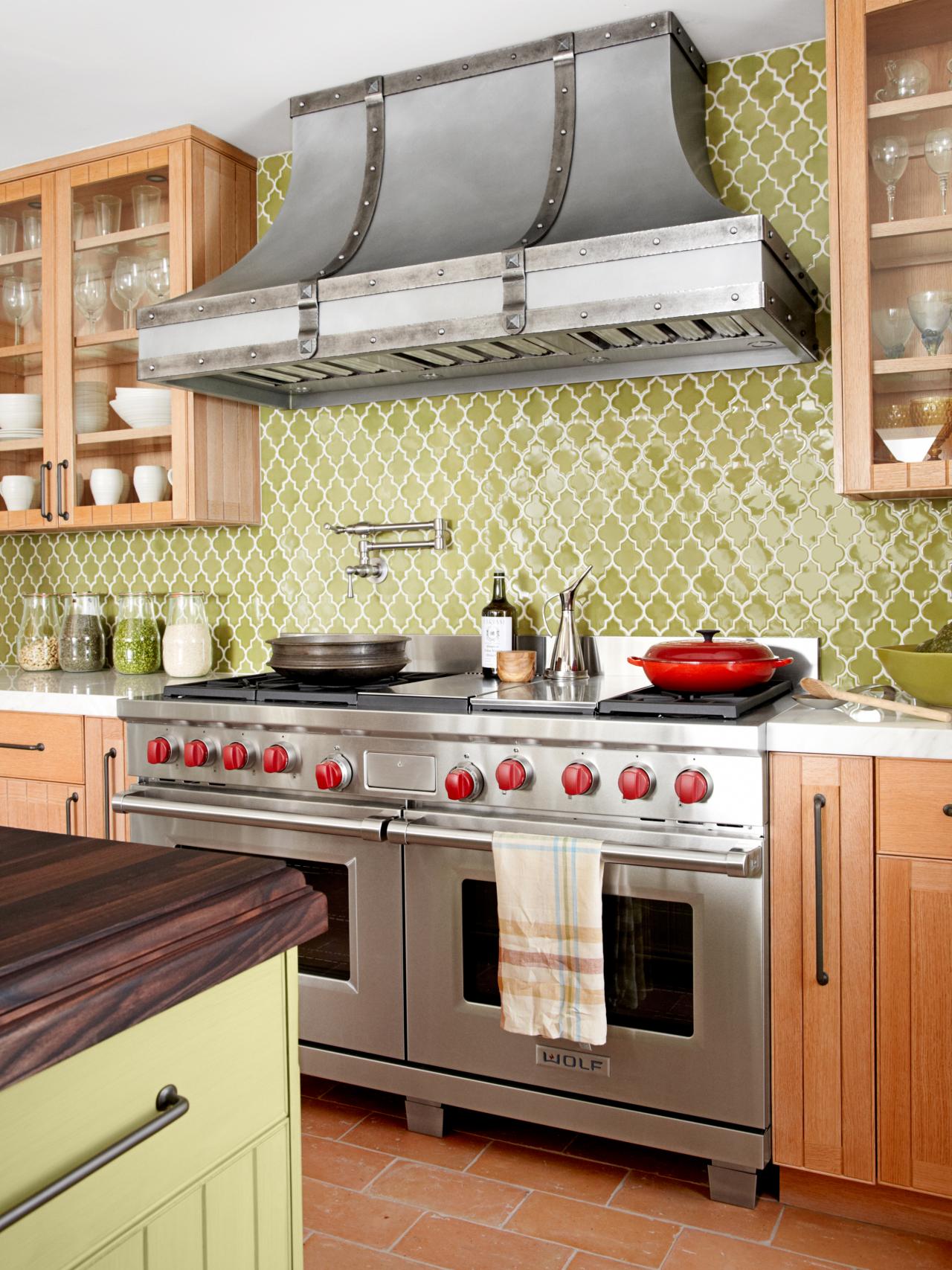
Ceramic Tile: Timeless Elegance and Durability
Ceramic tile is one of the most popular choices for kitchen backsplashes, thanks to its timeless appeal, durability, and versatility. Available in a wide range of colors, patterns, and sizes, ceramic tile offers endless design possibilities to complement any kitchen style, from classic to contemporary. Additionally, ceramic tile is resistant to heat, stains, and moisture, making it easy to clean and maintain—a crucial factor in a busy kitchen environment.
Another advantage of ceramic tile is its affordability, making it accessible to homeowners with various budget constraints. Whether you opt for simple subway tiles for a clean, minimalist look or intricate mosaic patterns for added visual interest, ceramic tile allows you to customize your backsplash to reflect your taste and style. With proper installation and maintenance, a ceramic tile backsplash can withstand the test of time, making it a sound investment for your kitchen.

Glass: Sleek and Reflective
For a modern and sleek aesthetic, glass is an excellent choice for kitchen backsplashes. Glass tiles or panels offer a reflective surface that can brighten and visually expand the space, making it ideal for smaller kitchens or those with limited natural light. Glass also comes in a variety of colors and finishes, allowing you to create a custom backsplash that complements your kitchen’s color scheme and design.
In addition to its aesthetic appeal, glass is non-porous and resistant to stains, making it easy to clean and maintain—a crucial consideration in a high-traffic area like the kitchen. Unlike ceramic tile, glass is not prone to discoloration or fading over time, ensuring that your backsplash retains its beauty for years to come. However, glass may be more susceptible to scratches and chips, so it’s essential to handle and maintain it with care to prevent damage.
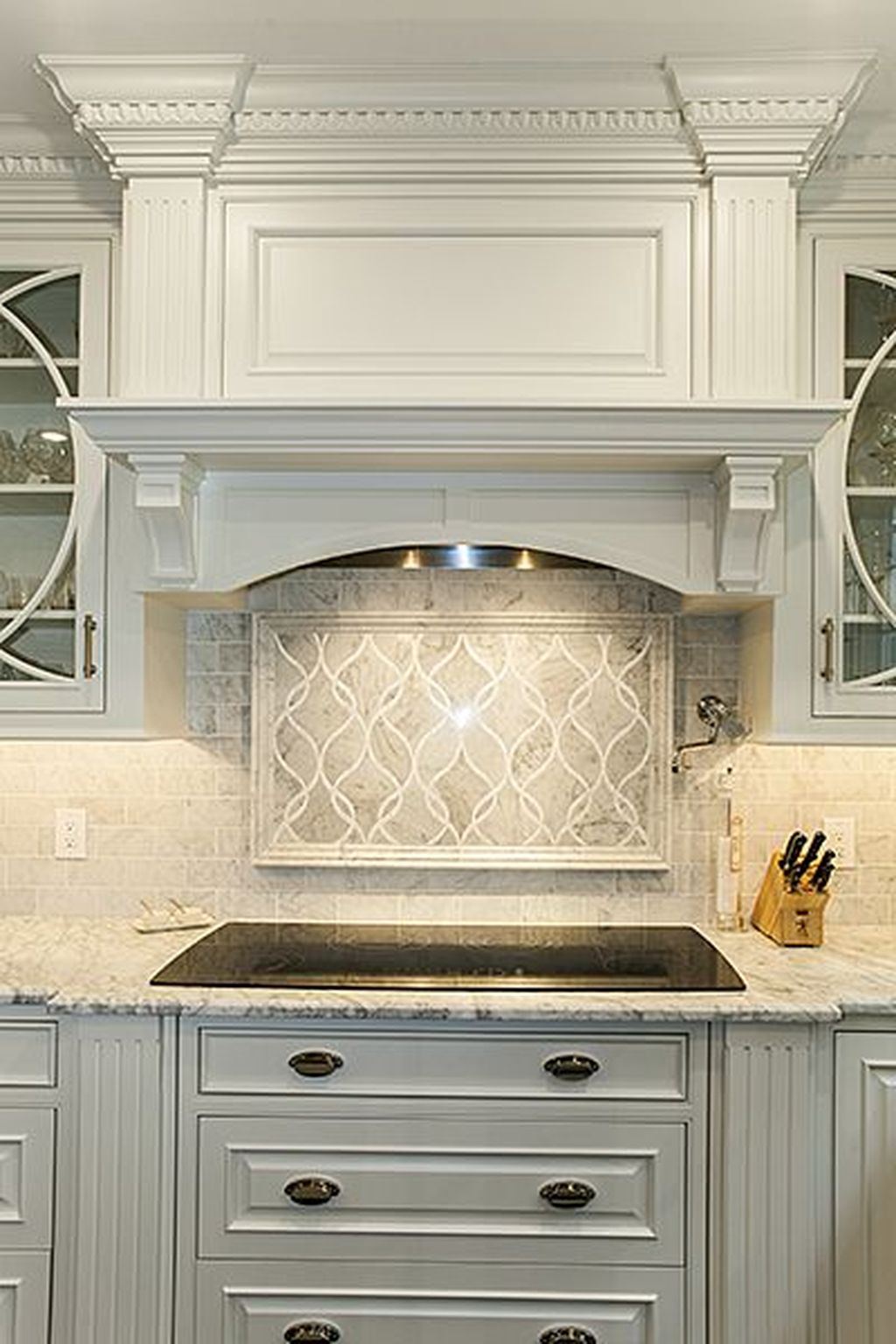
Stainless Steel: Modern and Industrial
For a contemporary and industrial-inspired look, stainless steel is an excellent choice for kitchen backsplashes. Known for its sleek appearance, durability, and resistance to heat and moisture, stainless steel adds a modern touch to any kitchen space. Stainless steel backsplashes are also hygienic and easy to clean, making them a practical option for busy cooks.
In addition to its practical benefits, stainless steel complements a variety of kitchen styles, from modern to rustic. Its reflective surface can help bounce light around the room, creating a brighter and more inviting atmosphere. Stainless steel backsplashes are available in various finishes, including brushed, satin, and mirror-like polished, allowing you to customize the look to suit your preferences.
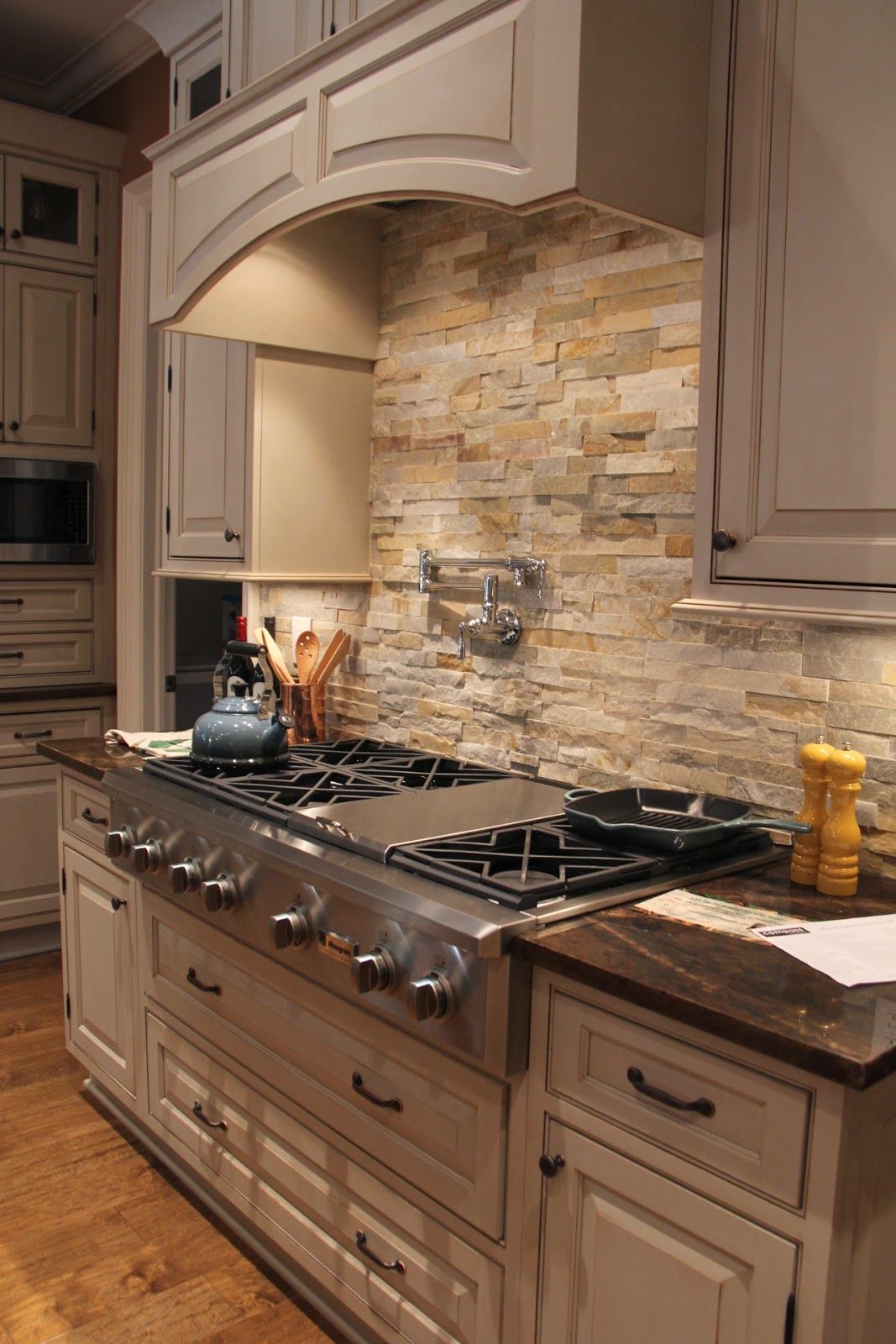
Natural Stone: Timeless Beauty and Texture
For those seeking a more organic and earthy aesthetic, natural stone is an excellent choice for kitchen backsplashes. Materials such as marble, granite, slate, and travertine offer unique textures, patterns, and colors that add warmth and character to the space. Natural stone backsplashes create a sense of luxury and elegance, elevating the overall design of the kitchen.
One of the main advantages of natural stone is its durability and longevity. With proper sealing and maintenance, natural stone backsplashes can withstand heat, moisture, and daily wear and tear, making them suitable for busy kitchens. Each piece of natural stone is unique, adding a touch of authenticity and individuality to your kitchen design. However, it’s essential to note that natural stone may require more maintenance than other materials, as it can be susceptible to staining and etching if not properly sealed and cared for.

Common Mistakes to Avoid with Kitchen Backsplash Materials
Neglecting to Consider Maintenance Requirements: Different materials have varying maintenance needs, so it’s crucial to choose a backsplash material that aligns with your lifestyle and maintenance preferences. Neglecting proper maintenance can lead to staining, discoloration, and damage over time.
Ignoring Compatibility with Countertops: Your backsplash should complement your countertops both aesthetically and functionally. Consider the color, texture, and style of your countertops when selecting a backsplash material to ensure cohesive design and seamless integration.
Overlooking Installation Costs: In addition to the cost of materials, factor in the installation costs when budgeting for your kitchen backsplash project. Some materials may require specialized installation techniques or professional assistance, which can impact the overall project cost.
Choosing Trendy Over Timeless: While it’s tempting to opt for trendy materials and designs, consider the long-term implications of your choice. Trends come and go, but classic and timeless materials, such as ceramic tile or natural stone, will stand the test of time and maintain their appeal for years to come.
Skipping Samples and Test Panels: Before committing to a specific backsplash material, request samples or test panels to see how the material looks and feels in your kitchen environment. This allows you to assess the color, texture, and overall appearance before making a final decision.

Which backsplash material is the most durable?
While durability varies depending on the specific material, natural stone such as granite and quartzite are known for their strength and resilience.
Are glass backsplashes prone to breaking?
Glass backsplashes are generally durable, but they can be susceptible to chips and cracks if not handled carefully. Opt for tempered glass for added strength and safety.
Can I install a backsplash over existing tile?
Yes, you can install a new backsplash over existing tile as long as the surface is clean, flat, and in good condition. However, it’s essential to ensure proper adhesion and compatibility with the existing tile.
What is the best way to clean and maintain a stainless steel backsplash?
To clean a stainless steel backsplash, use a mild detergent or stainless steel cleaner and a soft cloth or sponge. Avoid abrasive cleaners or scrubbers that can scratch the surface.
Do natural stone backsplashes require sealing?
Yes, natural stone backsplashes should be sealed regularly to protect against stains and moisture damage. The frequency of sealing depends on the type of stone and usage level.
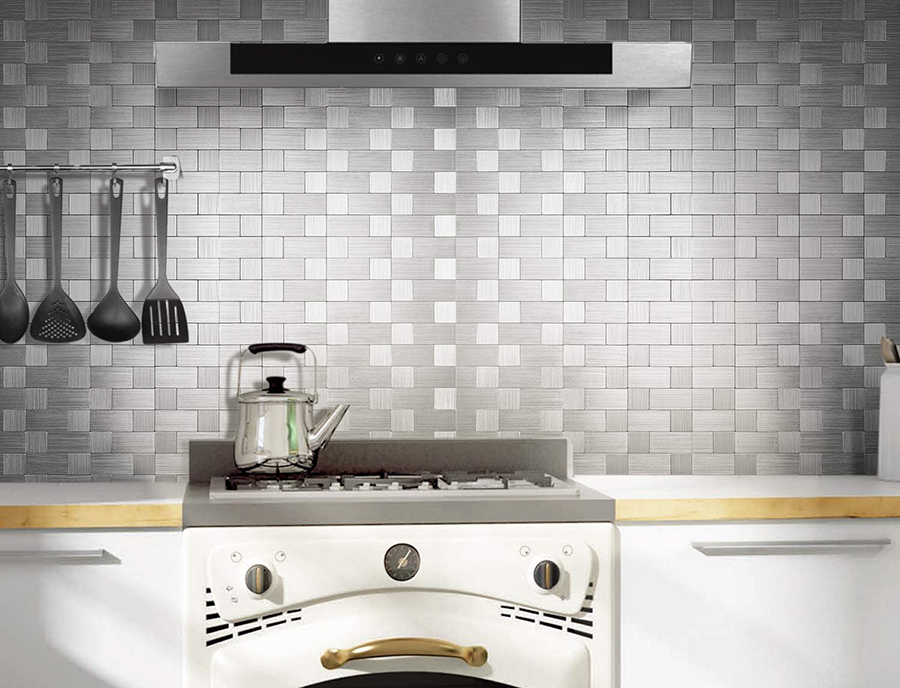
Textured Backsplash in Compact Kitchen
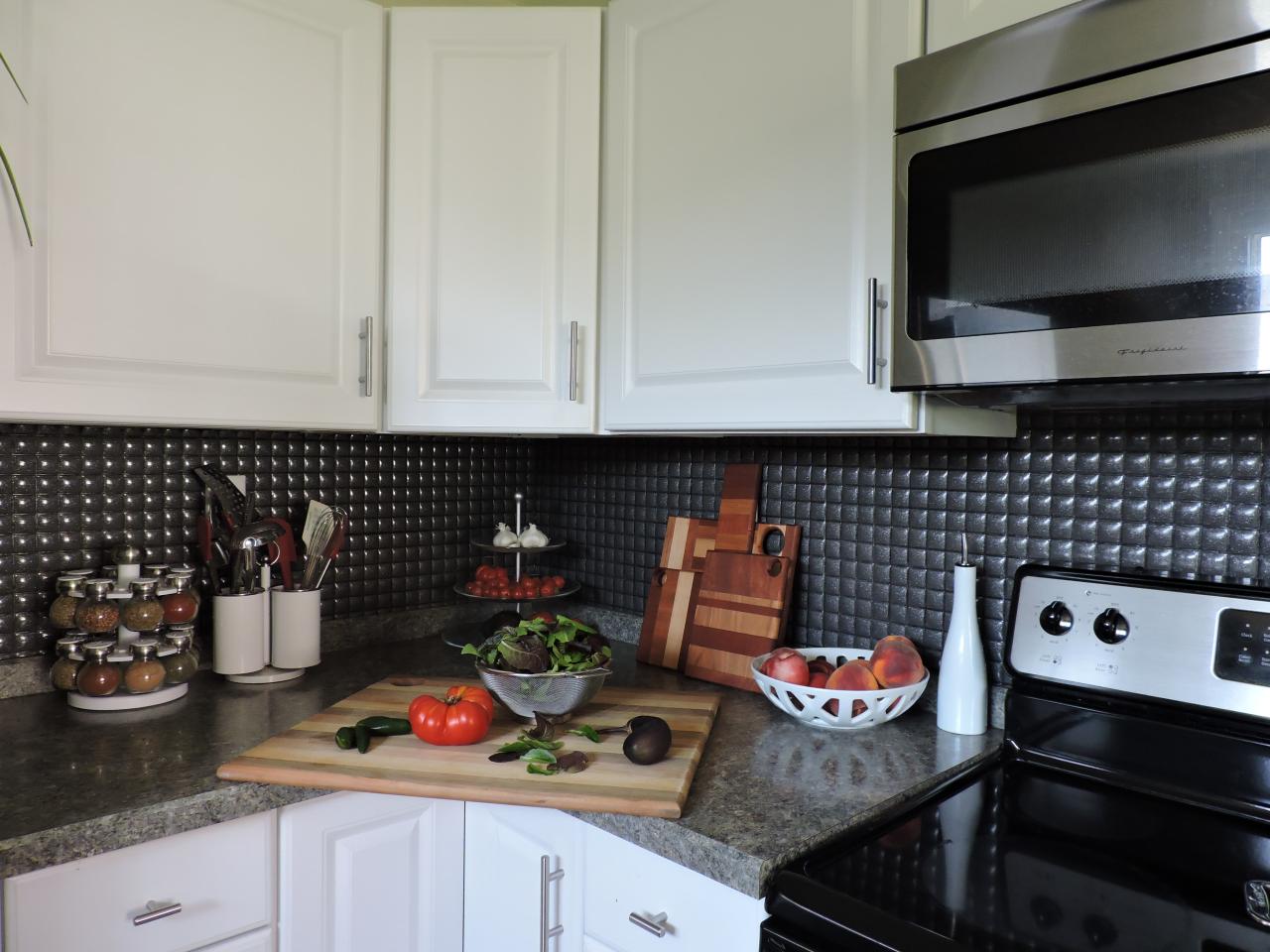
Wood Backsplash Ideas

need help choosing backsplash
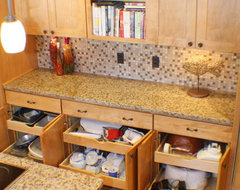
kitchen backsplash ideas Archives – Queen City Stone & Tiles
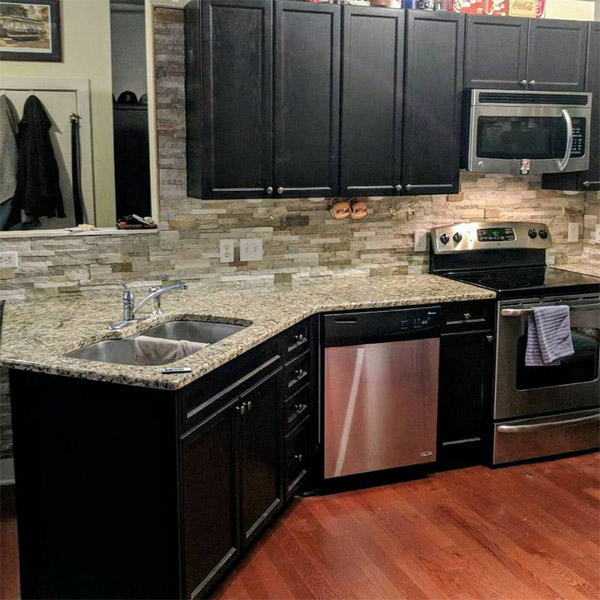
Kitchen Backsplash

Related Posts:
- Mexican Style Kitchen Backsplash
- Brown Subway Tile Kitchen Backsplash
- Groutless Kitchen Backsplash
- Iridescent Kitchen Backsplash
- Tiling Kitchen Backsplash Corners
- Ceramic Glass Tile Kitchen Backsplash
- One Piece Backsplash For Kitchen
- Installing Tin Backsplash Kitchen
- Kitchen Backsplash Herringbone Pattern
- Farmhouse Kitchen Backsplash Ideas